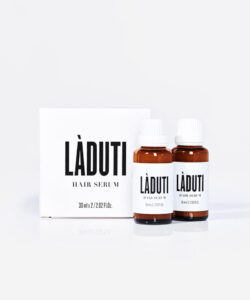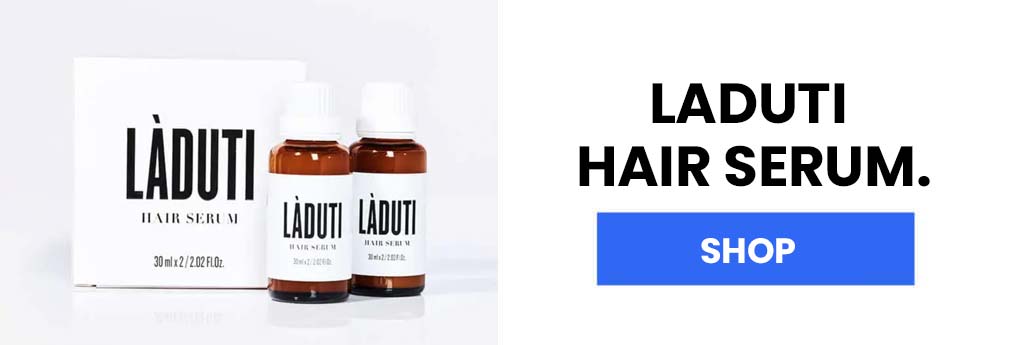Hair loss, referred to in technical language as Alopecia affects many people nowadays. Men, in particular, often suffer from increased hair loss before the age of 30, while in Women mostly after menopause corresponding problems occur. The types and causes are very different. Thus, in the vast majority of cases, the decrease in hair fullness is simply hormonal, more precisely, hereditary. However, there is also the unnatural, diffuse hair loss. Nutrition and certain foods play an important role here, as healthy hair growth is dependent on numerous nutrients.
How to grow hair
In order to avoid the Hair loss it is worthwhile to take a look at the biological conditions of hair growth. In total, the human being possesses about five million hairs, of which Europeans circa 100.000 sit on the head. Of this percentage, about 100 fall out every day in a completely natural way, after which the hair root starts the growth process again. The hair root itself is located under the top layer of skin and consists, among other things, of a hair papilla and a matrix, both of which remain for life.
Over a period of two to six years, these form keratin-rich horn cells, which eventually form the hair shaft, which migrates ever upwards. All this happens with each individual hair in a constantly changing cycle of growth and rest phases, as long as the hair root is active. Above all, the range of the possible growth time shows, the healthier the hair rootthe more active and long-lasting the growth. If, on the other hand, the roots receive too little energy, they temporarily or even permanently stop their activity and hair loss occurs.
Types hair loss
Hair and its growth are therefore quite complex. That is why hair loss can be quite different Causes so that its eventual treatment is equally varied, although nutrition always plays a more or less important additional role. Genetic hair loss for example, cannot be stopped in the end. In this case, the lack of growth is due to a hypersensitivity of the hair roots to the hormone Dihydrotestosterone (DHT)the male sex hormone, of all things. This predisposition affects a large proportion of all people and is the most common cause of failure and is most evident in the formation of receding hairline. Among other Species finally important is the diffuse hair loss. Here, the hair loss occurs evenly on the entire scalp. The following things are possible triggers for this:
- Diseases such as disorders of the Thyroid function or diabetes
- Use of medications such as anticoagulants and cholesterol-lowering drugs
- Stress on the psyche, for example due to Stress
- Hormonal fluctuations especially in women in the Pregnancy or menopause
- General lack of nutrients
Hair loss and diet most often associated
Strictly speaking, hair loss and nutrition are almost always related, or the other way around: a healthy nutrient intake helps to slow down or stop hair loss altogether. Because although diseases, hormonal fluctuations and so on may or may not play a role, the body needs nutrients for all its life processes. Energywhich he has taken, among other things, from the Food refers.
But who actually suffers from an illness, his body is in an imbalance and the energy balance is more or less disturbed. Thus, a balanced supply of all necessary nutrients is always important. With regard to the hair, this means that in the case of hair loss, certain nutrients are not available in sufficient quantities and therefore the health of the hair is impaired.
Vitamins that help hair
Against hair loss you should have many vitamin-rich foods have on your menu and thus eat enough fruits and vegetables. True to the motto "An Apple a Day keeps the Doctor away".
Vitamin A, for example, ensures suppleness of the hair shaft and robustness for external stimuli. This is found in dairy products, carrots, peppers and apricots, among other things.
Vitamin B is responsible for the production of sebum and the metabolism in the hair root. It is also anti-inflammatory. Vitamin B donors are generally meat, legumes and egg yolk.
Vitamin C plays an important role in the blood circulation, because it is necessary for iron to be bound and transported. A deficiency is therefore not beneficial for blood circulation. Important suppliers here are all kinds of citrus fruits and also cabbage vegetables.
Biotin causes a tightly closed scale armour of the hair shaft, which in turn results in a robust structure and shine. Biotin is often found in meat, milk, whole grain products and nuts.
Protein plays a major role
Hair consists largely of keratin-rich cells. Keratins belong to the proteins, that is, proteins. Therefore, you need a rich protein supply. If there is a deficiency, the hair is less strong and resistant and appears duller. Incidentally, the fingernails are largely made up of very similar keratin cells to those in the hair. Thus an undersupply also shows itself there for example by brittle structure, indentations or white spots. Fortunately, protein deficiency affects the western countries rather less. Many products such as meat, fish, milk, potatoes, cereals and nuts contain animal and vegetable proteins.
Attention to fats and sugar
If you consume too many fats and sugars, you harm your whole body and especially your skin and hair. This is because an excess of sugar inhibits the absorption of proteins from food. Fat, on the other hand, is of double importance. Too much of it causes a rise in testosterone levels, which is all the more damaging especially in cases of genetic hair loss. In addition, hardened fats can clog the pores of the skin. If this happens on the scalp, for example, it causes a hair root to degenerate in the long run. However, this does not justify a complete renunciation of products containing fats. After all, fatty acids are found in cell membranes and are also important in sebum, which keeps hair supple.
No energy with iron deficiency
Iron is one of the most important elements in the human body. Last but not least, it plays a decisive role in oxygen transport and blood formation and is therefore responsible for the energy supply of all cells and their growth. Hair loss and food are therefore particularly linked when there is a deficiency of iron, which is the case for many women during menstruation and when they have a high blood sugar level. Pregnancy is the case. Many types of meat, nuts, cereals and pulses are available to provide balance.
Trace elements are important
Furthermore, copper and Zinc significant elements. These stimulate the metabolism by activating enzymes. This is accompanied by cell division and thus also the growth of hair from the hair root. Furthermore, zinc has an anti-inflammatory effect and is necessary for the synthesis of collagen, which strengthens the hair structure and the hold of the hair in the scalp and thus basically counteracts hair loss. While copper can be obtained from nuts, pulses, dried fruit and wholemeal products, zinc is mainly found in animal products such as cheese, milk, eggs and meat.
Vegans and vegetarians extra vulnerable
The example of zinc shows that hair loss and the food required is a topic worthy of attention for people with a special diet plan, for example vegetarians and vegans. If animal products are not consumed, a balance must be found and attention may have to be paid to individual substances. Walnuts and pumpkin seeds are the most likely sources of zinc. If you want to be on the safe side, you should have a regular health check-up with your family doctor. A blood count can quickly identify deficiencies and supplement the dietary intake in a targeted manner, or more precisely, change it.
Provide support with care products
If your diet is balanced enough and hair growth is still affected, it may simply be due to the stresses and strains of your daily life. Even spending time in the cold air in winter takes its toll on the hair, as does intense sunlight in the summer. There are various care products to support regeneration. It is important to use a gentle treatment.
The Hair growth serum from Laduti for example, is based on natural ingredients and was specially developed for hair loss and for a stable growth cycle. It is both free from Minoxidil as well as hormoneswhich is why there are no known side effects.
Do dietary supplements help for hair loss?
Ideally, the use of dietary supplements is done in consultation with a doctor or at least after a consultation with the hairdresser, who certainly also knows the matter. In addition, the correct dosage is then paramount. Because with all necessity of the mentioned nutrients and vitamins, an oversupply can quickly turn the desired effect into the opposite and lead to problems with the digestion or also the thyroid gland. In this respect, as is generally the case with regard to health, the following also applies to hair loss: Ideally, always eat in a regulated amount. With the combination of a balanced diet and optimal hair care, you can counteract hair loss. The Products from Laduti help you win the fight for hair loss in the long term.
FAQ - Questions and answers
Why should I change my diet if I have hair loss?
Losing your hair is a sign that you are not consuming enough nutrients. Avoiding sugar and unhealthy fats like an excess of omega-6 fatty acids, has a negative impact on your overall health. Therefore, fruits, vegetables and protein-rich foods should be on the menu.
What is the best vitamin to take for hair loss?
Besides vitamins A, C, D and E, biotin (vitamin B9 or vitamin H) plays an important role in the hair growth process. It also strengthens their skin structure and finger and toenails.
What is the most effective way to get enough ingredients?
With the right amount, the middle measure is always the most sensible, so that, for example, a handful of nuts per day is enough to cover the daily biotin requirement. Especially peanuts, hazelnuts and cashews have plenty of this nutrient. Supplements should only be considered if they cannot be covered by normal eating habits. A discussion with the doctor is always advisable in this case.
What supplements for problems with hair?
These should only be used if they do not get enough of the appropriate nutrients through food. This can be the case for vegetarians and vegans, for example, if iron and proteins are lacking. However, plant-based products are also suitable here, although it should always be noted that normal food is preferable to supplements. Optimally, they "supplement" the deficit of nutrients.



